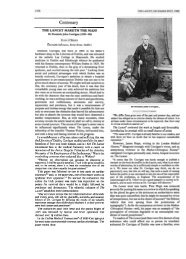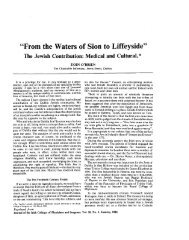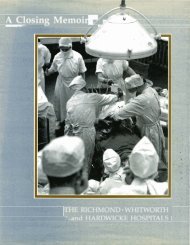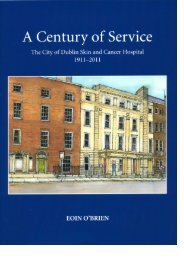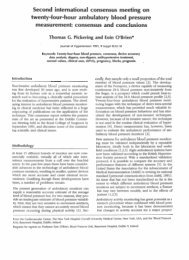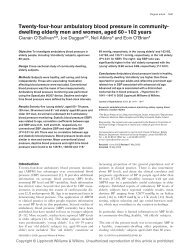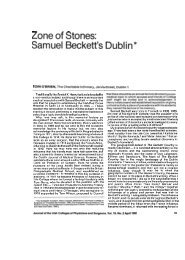Nevill Johnson: Paint the smell of grass - Eoin O'Brien
Nevill Johnson: Paint the smell of grass - Eoin O'Brien
Nevill Johnson: Paint the smell of grass - Eoin O'Brien
You also want an ePaper? Increase the reach of your titles
YUMPU automatically turns print PDFs into web optimized ePapers that Google loves.
1. I and my wife prepared a picnic for an afternoon on <strong>the</strong> shores <strong>of</strong> Lough<br />
Neagh.<br />
2. John Luke scraped with a razor blade and polished with silk cloth a gesso<br />
panel, preparing to lay <strong>the</strong>reon an imprimatura or glaze <strong>of</strong> Ivory Black<br />
and Terre Verte.<br />
3. The bones <strong>of</strong> Clegbert Chutz lay quiet in his grave in Morganza,<br />
Louisiana.<br />
4. The ruins and <strong>the</strong> people <strong>of</strong> Hiroshima lay steaming and screaming in <strong>the</strong><br />
evening sun. Colonel Paul Tebbitts, illustrating that strange paradox <strong>of</strong><br />
submission to aggression enacted by all soldiers, had fulfilled his duty.<br />
Having centred his aircraft over <strong>the</strong> city he signalled release <strong>of</strong> <strong>the</strong><br />
9,000 lb bomb. It burst with <strong>the</strong> heat and blast <strong>of</strong> twenty thousand tons<br />
<strong>of</strong> Tri-Nitro – Toluene above <strong>the</strong> living day – <strong>the</strong> scrubbing typing<br />
teaching eating nappy-changing day. 97,000people were blistered and<br />
destroyed, 10,000 died later <strong>of</strong> cancer and radiation sickness.<br />
August 9th A second bomb named ‘big boy’ was dropped on Nagasaki.<br />
It was inevitable that <strong>the</strong> South <strong>of</strong> Ireland would soon beckon as a haven from <strong>the</strong> turmoil <strong>of</strong><br />
post-war Belfast, a broken marriage and <strong>the</strong> ever-present demon <strong>of</strong> doubt: “All artists are subject<br />
to periods <strong>of</strong> doubt, however, and I was no exception. It came suddenly; <strong>the</strong> painting was rubbish<br />
I felt, however well received; <strong>the</strong>se silent surreal wastelands, <strong>the</strong>se mute bones and raven skies –<br />
who was I addressing? Of what relevance<br />
<strong>the</strong>se Arcadian shores to a world <strong>of</strong><br />
blackmail and bombs? In despair I ravaged<br />
<strong>the</strong> housekeeping pot and caught <strong>the</strong> train<br />
for Dublin. I had to see Victor, to have his<br />
assurance – though God knows he couldn’t<br />
really help me. He provided lunch, brandy,<br />
money, warmth and flattery. I thanked him<br />
and left. But <strong>the</strong> brandy soon evaporated<br />
and <strong>the</strong> cigar became sour in my mouth.<br />
My song was a squeak I thought, my world<br />
a pretty place but gutless and unmanned. I<br />
was insulated, uncommitted – a touchline<br />
aes<strong>the</strong>te.”<br />
122 <strong>Nevill</strong> <strong>Johnson</strong> l <strong>Paint</strong> <strong>the</strong> Smell <strong>of</strong> Grass<br />
Off St. Stephens Green<br />
In Dublin “I closed one eye to make a friend – and found plenty.” Here his painting flourished.<br />
In 1946 Waddington encouraged <strong>Johnson</strong> to paint full time, <strong>of</strong>fering him a retainer, and a regular<br />
allowance. He blended readily in <strong>the</strong> agreeable social milieu <strong>of</strong> <strong>the</strong> ‘largest village in Europe’. The<br />
good dinners and cigars in Jammet’s – courtesy <strong>of</strong> Victor Waddington – were relished, at least<br />
initially. This temporary security allowed <strong>Johnson</strong> time to reflect to read more and to ponder his<br />
future. The work <strong>of</strong> Samuel Beckett is a constant refrain in <strong>Johnson</strong>’s writings and he told me many<br />
years later that Beckett was an ever-present source <strong>of</strong> encouragement to him. We find a remarkable<br />
similarity in <strong>the</strong> artistic mission that each imposed upon <strong>the</strong>mselves: “Right now I lay on <strong>the</strong> bed<br />
smoking, thinking over <strong>the</strong> day’s talk; <strong>of</strong> <strong>the</strong> creature who had enquired <strong>of</strong> me not only what sort<br />
<strong>of</strong> painting I made but why I painted. How answer that in words? Might as well measure distance<br />
with a <strong>the</strong>rmometer – or pitch with a footrule. And that fellow reading Roland Bar<strong>the</strong>s – who was<br />
this he quoted? Angelus Silesius (never heard <strong>of</strong> him). ‘The eye by which I see God is <strong>the</strong> same eye<br />
by which he sees me’ . . . rum thought.” How similar <strong>the</strong>se sentiments are to those <strong>of</strong> ano<strong>the</strong>r artist<br />
struggling to find <strong>the</strong> meaning and <strong>the</strong> means <strong>of</strong> artistic expression:<br />
A Personal Memoir l <strong>Eoin</strong> O’Brien 123



